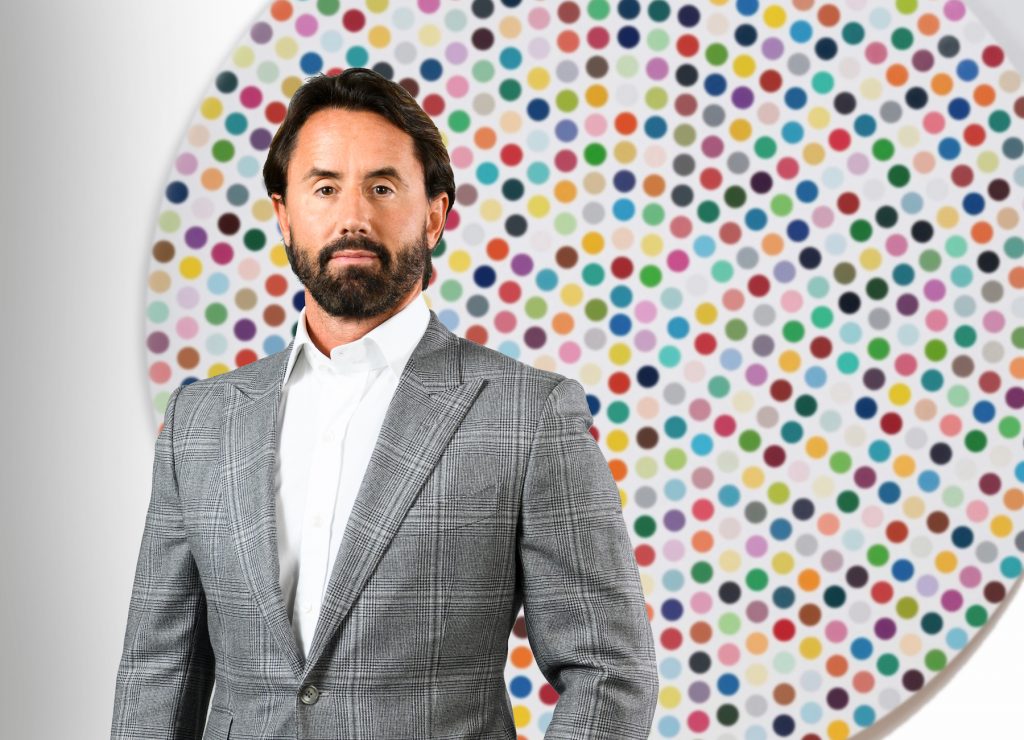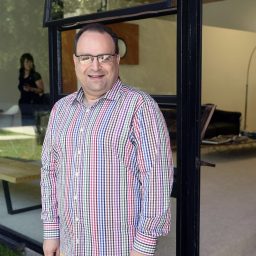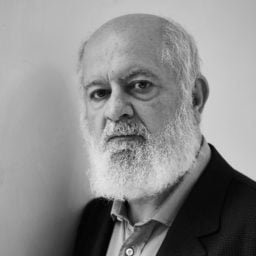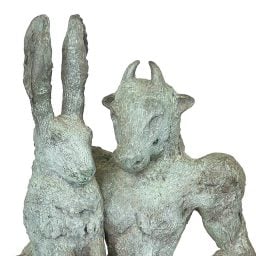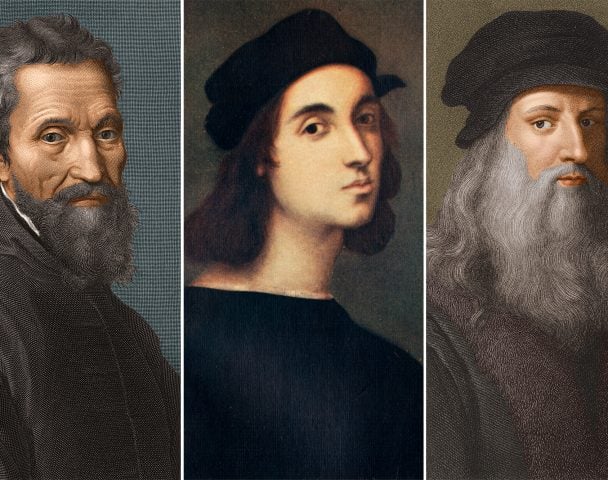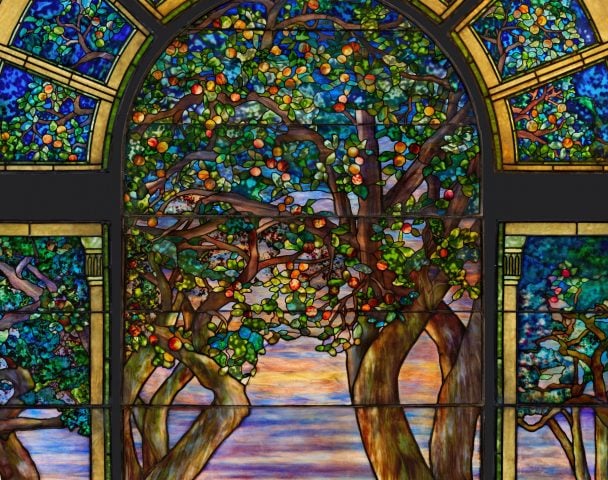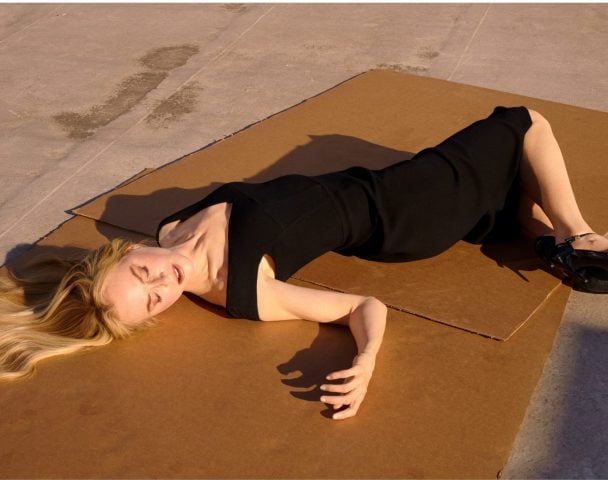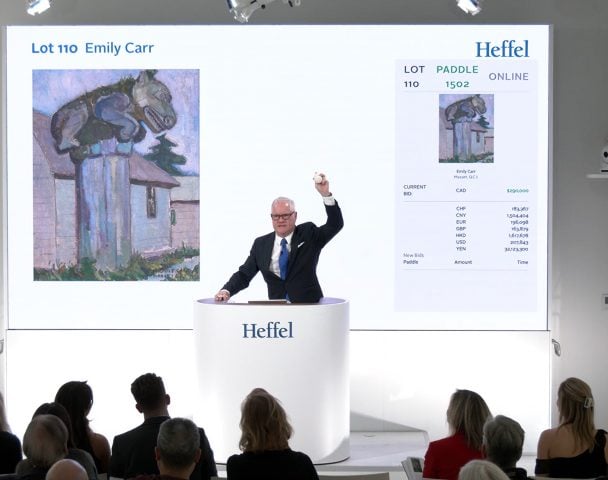In just seven short years, Maddox Gallery, which was founded in London in 2015, has become a juggernaut at the intersection of luxury and art. The gallery now has three locations in London, along with outposts in Gstaad and Los Angeles, each offering the gallery’s signature mix of works by blue-chip artists such as KAWS, Jean-Michel Basquiat, and Keith Haring alongside hot-ticket emerging names, including the Connor Brothers, Bradley Theodore, and Joseph Klibansky.
Jay Rutland, the gallery’s creative director, has been a guiding force since its inception, cultivating an environment that welcomes both established and aspiring collectors. In his own time, Rutland is devoted to building his own unique collection.
Rutland recently spoke with Artnet News about his own journey in the art world, the artists he’s hoping to add to his collection this year, and the gut reaction he heeds when encountering a new work.
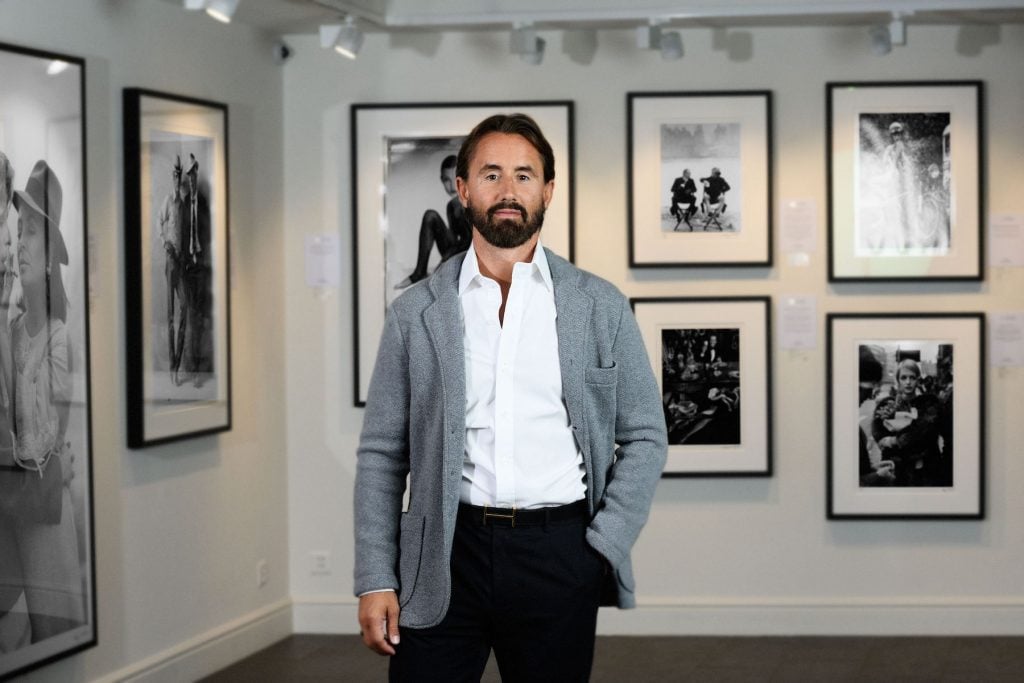
Jay Rutland, creative director of Maddox Gallery.
Tell me a bit about your journey. How and why did you start working in art? What led you to where you are today?
My sister’s husband was a prolific art collector, and every time I visited their house, they would have added a new work to their collection. It inspired me to start collecting myself, but it immediately struck me how inaccessible art galleries were. If you did not have any prior knowledge of art, it was near impossible to find someone who was nonjudgmental to help you start your collection. That’s where the idea for Maddox Gallery originated. We want to help everyone advance their art collection, whether they are seasoned collectors or have never even stepped inside an art gallery before.
How do you choose the artists you exhibit? What type of art are you drawn to and why?
The way that artists have approached Maddox has changed considerably from when we first started six years ago. It has even changed significantly since the pandemic. The meteoric rise of social media, as well as our increased visibility in the industry, has led to unprecedented accessibility for artists and has allowed for direct conversations between artists and galleries to take place. I recently discovered a new artist called Cooper on Instagram. I messaged him and we started chatting. We quickly organized a Zoom call and after that, we flew him over to London to meet the team. I am excited to say we have just signed Cooper exclusively and will be hosting his first U.K. solo exhibition at our flagship location in October this year.
Who do you consider the most influential artists of our time?
I consider an influential artist someone who completely disrupts the status quo, and I believe Banksy has achieved that. He has taken an art form that was once relegated to abandoned buildings and subway carriages and transformed it into one of the most desirable genres of our time.
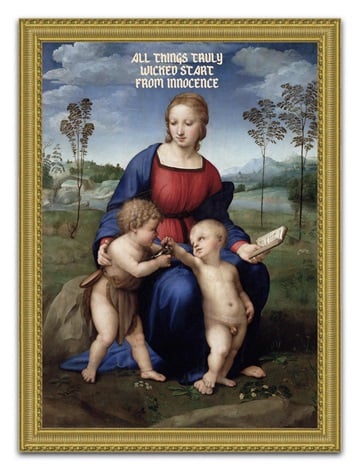
The Connor Brothers, All Things Truly Wicked (2021). Courtesy of Maddox Gallery.
What has been your most memorable experience in the art world?
Watching artists and their careers develop has been particularly exciting, especially when you feel like you have had a notable impact on their journey. When we first opened Maddox, for example, the Connor Brothers were just emerging onto the art scene, and now they have a collector base that is international. Another great example is the rise of contemporary photographic artist David Yarrow, with whom we have worked closely for years.
You also have an expansive personal collection. What was the first work you purchased? Which was the most expensive? Is there a work that you consider the highlight of the collection?
There are definitely some artworks in my collection I would consider invaluable. The sentimental value of art often far outweighs the monetary costs. The first artwork I bought was Rude Copper by Banksy back in 2004. I vividly remember the excitement I felt when I bought it, and I still own it today. I am also an avid collector of George Condo and am always looking to add more of his work to my collection. Another blue-chip name I want to purchase is Yayoi Kusama. I love her work and am actively looking for the right piece. In terms of emerging artists, I am looking forward to hopefully adding works by both Cooper and Ross Muir, two artists I love, this year.
What advice would you give a first-time collector?
In the industry, we talk a lot about art advisors and understanding art history, and it is true that visiting galleries and undertaking research will help you make an informed and educated decision. However, there is one thing that you cannot achieve from research alone, and that is having a connection with a piece of art. That gut reaction and personal connection is a vital and unique part of every art purchase.
If you could own any work of art in the world what would it be?
There is a Warhol going up for auction at Christie’s in May called Shot Sage Blue Marilyn (1964). With an estimate of $200 million, it is predicted to become the most expensive 20th-century artwork on record, although it would have to at least double its estimate to beat Salvator Mundi. Warhol’s Marilyn design has become synonymous with the artist and the Pop movement itself, and I particularly love the vibrancy of the colorway. It is a truly iconic artwork.
If you weren’t the creative director of an art gallery, what would you be doing?
I honestly cannot imagine myself doing anything else. Art has become a central part of my identity, and I could not imagine my life without it.
